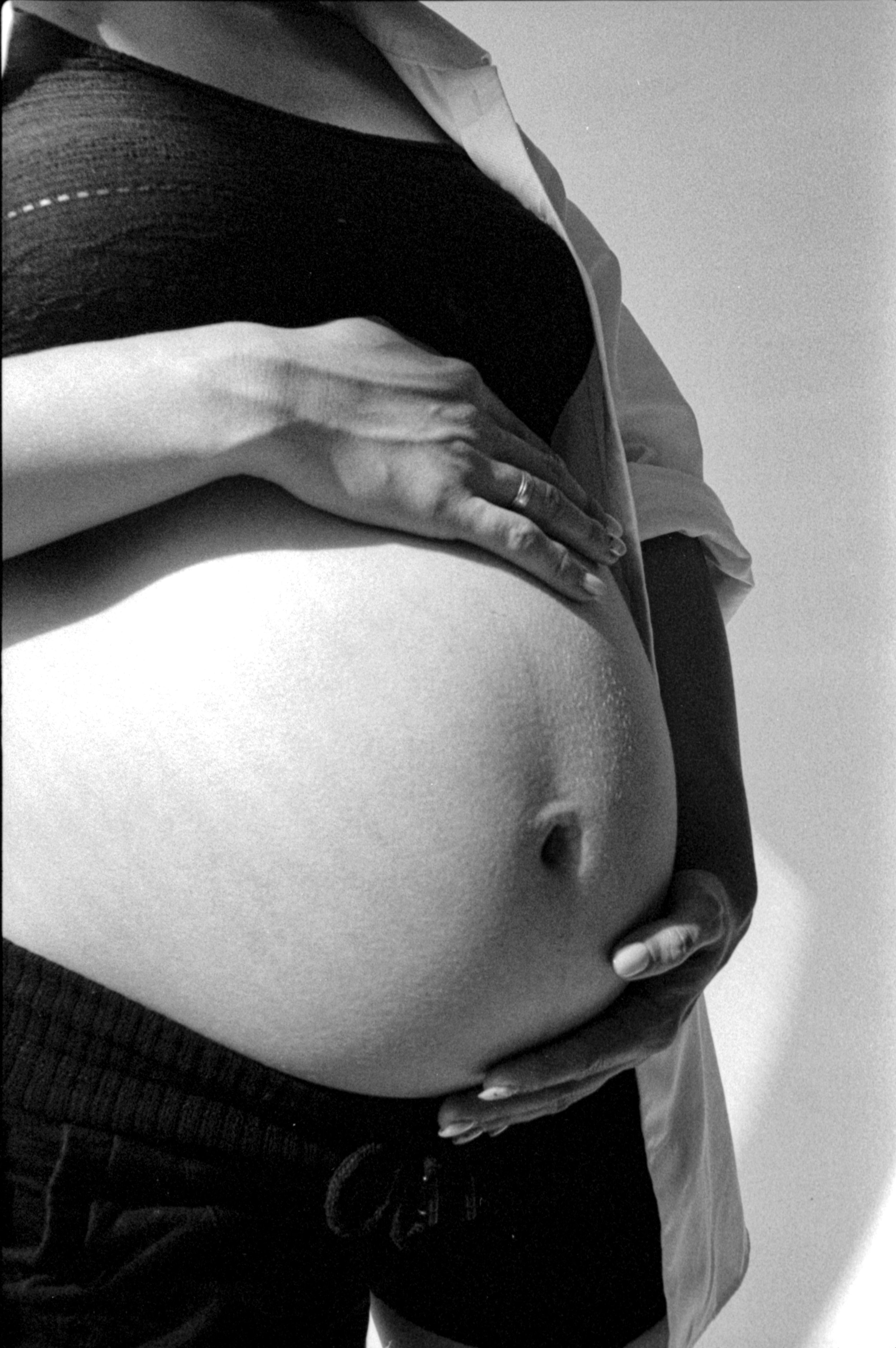
Pregnancy and the Immune System: How the Body Protects Both Mum and Baby
Pregnancy is a time of extraordinary biological transformation. Beneath the visible changes in your body lies a powerful, intricate process that ensures both your health and your baby's development: the adaptive behaviour of your immune system.

Postpartum Thermoregulation: Why You’re Sweating, Shivering, or Freezing
You’ve just had a baby, your body’s been through a monumental event, and suddenly you’re waking up drenched in sweat — or shivering under three blankets. These unexpected postpartum temperature shifts are more common than you might think.

The Uterus: Your Baby’s First Home and Birth Muscle
Breastfeeding is natural, essential and protected by law—but doing it in public can still feel daunting. Whether you’re a first-time mum or a seasoned parent, feeding your baby outside the comfort of home can stir up anxiety, uncertainty, and occasionally unwanted attention.

Breastfeeding in Public: Confidence, Covers & Knowing Your Rights
Breastfeeding is natural, essential and protected by law—but doing it in public can still feel daunting. Whether you’re a first-time mum or a seasoned parent, feeding your baby outside the comfort of home can stir up anxiety, uncertainty, and occasionally unwanted attention.

When Is the Right Time to Start Weaning?
Weaning can feel like one of those parenting milestones that sneaks up on you. One moment you’re learning how to hold your newborn, the next you’re staring down the baby aisle wondering if it’s time to offer a spoonful of purée or a piece of banana. It’s messy, exciting, and emotional all at once — because this isn’t just about food. It’s about watching your baby take their first step into independence.

Pregnancy Hormones: What’s Flooding Your Body (and Why)
Pregnancy is a time of astonishing transformation. Physically, emotionally, and mentally, your body becomes the setting for one of life’s greatest feats—creating and nurturing new life. But behind every physical change, every emotional wave, and every flutter of new sensation, there’s a powerful hormonal symphony playing just beneath the surface.

Vitamins & Supplements in Pregnancy: What’s Really Necessary?
Pregnancy comes with a whirlwind of advice – and it’s easy to feel unsure about what’s really essential. When it comes to vitamins and supplements, some are strongly recommended because they directly support your baby’s healthy development and your own wellbeing.

Delayed Cord Clamping: Benefits, 'Wait Until White', and NHS Guidance
Delayed cord clamping (DCC) is an evidence-based birth practice where the umbilical cord is not clamped immediately after delivery. Instead, healthcare professionals wait for at least one minute—or until the cord turns white and stops pulsating—before clamping. Supported by NHS and NICE guidance, DCC is increasingly standard in UK maternity care for its benefits to both term and preterm infants.

Understanding the Physiology of Labour: What to Expect
Pregnancy is a time of change—and with change can come anxiety, excitement, and uncertainty. Whether you're attending antenatal education in Tunbridge Wells or preparing from home with online antenatal classes, incorporating mindful breathing into your daily routine can offer a powerful anchor through it all.

The Benefits of Mindful Breathing in Pregnancy
Pregnancy is a time of change—and with change can come anxiety, excitement, and uncertainty. Whether you're attending antenatal education in Tunbridge Wells or preparing from home with online antenatal classes, incorporating mindful breathing into your daily routine can offer a powerful anchor through it all.

Why Iron Matters in the Third Trimester
As your baby grows rapidly in the final months, your blood volume expands by as much as 50%. This physiological shift helps deliver oxygen and nutrients through the placenta. But it also means your body needs significantly more iron — to produce enough haemoglobin to support both you and your baby.

Embracing Emotional, Social, and Medical Well-being in the Third Trimester
The third trimester is a time of immense transformation, not only physically but also emotionally, socially, and medically. As your body prepares for the arrival of your baby, it’s crucial to prioritise holistic health to navigate these changes with confidence and joy. While much focus is placed on emotional and social aspects, understanding the medical considerations during this phase is equally important. Here, we explore strategies to nurture these dimensions of health as you prepare for childbirth and beyond.

Understanding Braxton Hicks Contractions: What to Expect in the Third Trimester
As you journey through the third trimester, your body begins preparing for the arrival of your baby in remarkable ways. One of the most common – and sometimes confusing – experiences is Braxton Hicks contractions. These "practice contractions" can catch you off guard, but understanding them can make this part of pregnancy less daunting.

Physiological and Psychological Changes in the Third Trimester
The third trimester of pregnancy, typically spanning weeks 28 to 40, is a remarkable period of transformation as the body prepares for childbirth. This phase is characterised by significant physiological and psychological changes that are essential for the baby’s development and the mother’s readiness for labour. Understanding these changes can help expectant mothers navigate the challenges and celebrate the incredible process of creating life.

Self-Care Rituals for the Third Trimester: Preparing for Birth and Beyond
The third trimester is an exciting but intense time, as you prepare both mentally and physically for the arrival of your baby. Self-care becomes more essential than ever as your body and mind gear up for the demands of childbirth and the postpartum period. Incorporating nurturing, relaxation-focused self-care rituals into your daily routine can help you stay balanced, relieve discomfort, and promote calm as you approach birth. Here are some self-care activities, gentle exercises, and preparation tips to support you in the final trimester.

